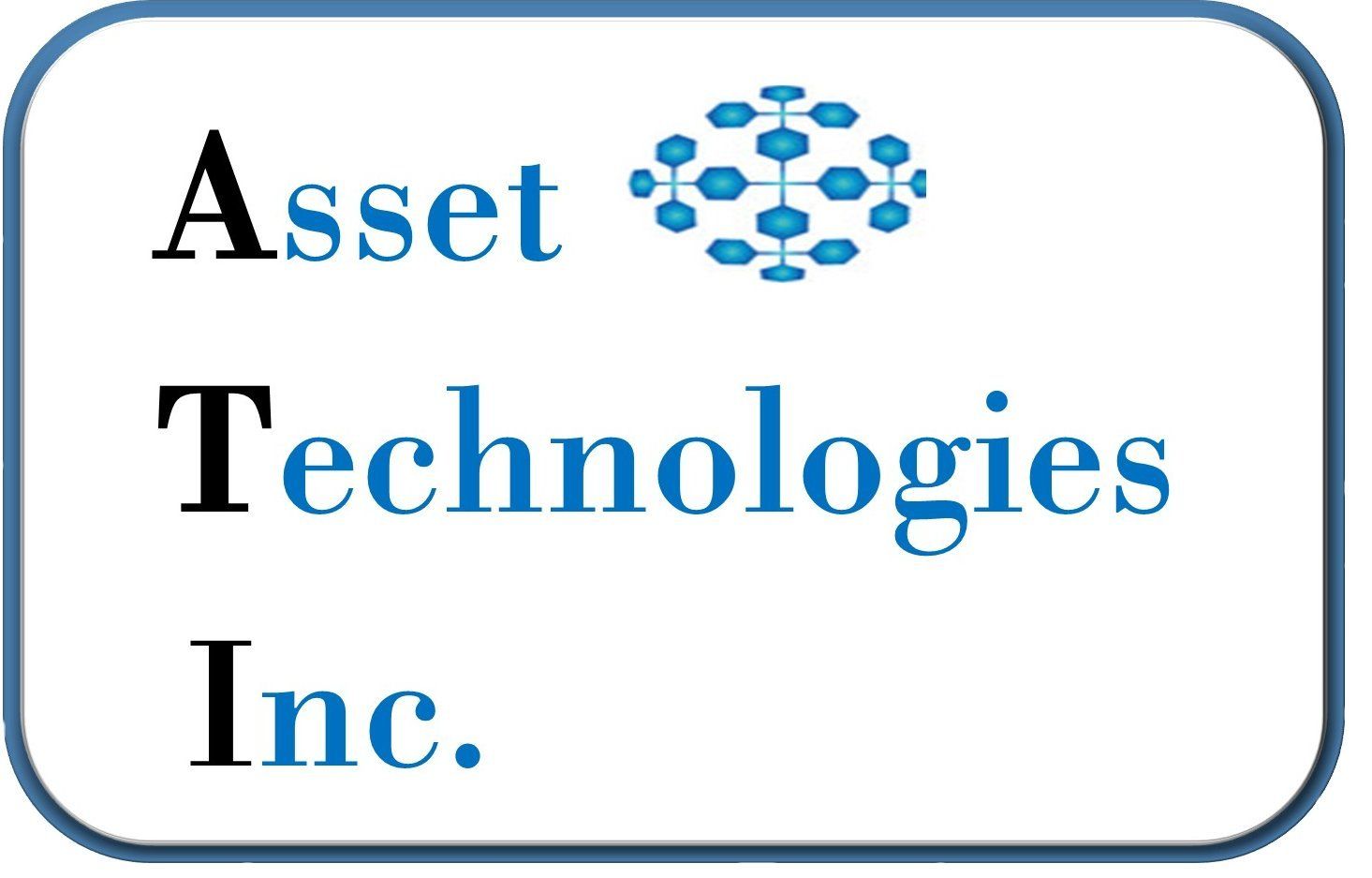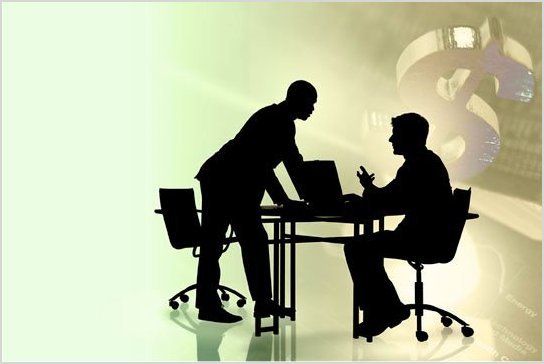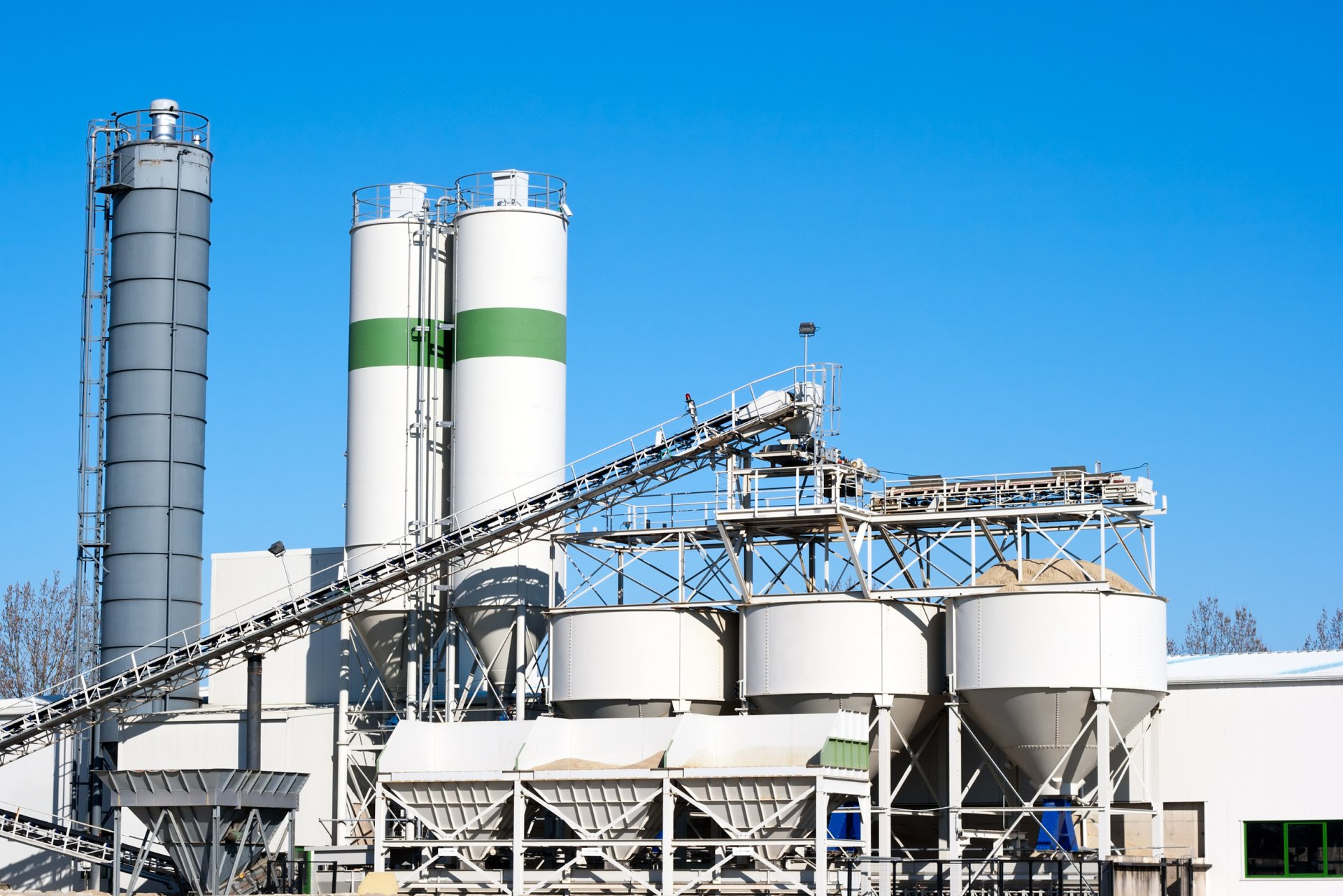Blog

In today’s complex legal landscape, disputes involving equipment valuation are becoming increasingly common. Whether it’s a case of business litigation, insurance claims, or asset division, accurately determining the value of machinery and equipment can significantly impact the outcome. This is where expert witnesses in equipment valuation play a crucial role, providing unbiased, fact-based assessments to assist courts, juries, and arbitrators in making informed decisions. In this comprehensive guide, we’ll explore the importance of expert witness services in equipment valuation disputes, the qualifications of a credible expert, and how their testimony can influence legal proceedings. Understanding the Role of an Expert Witness in Equipment Valuation An expert witness is a highly qualified professional who offers specialized knowledge beyond that of the average person to assist the court in understanding technical subjects. In cases involving machinery and equipment valuation, an expert witness’s testimony can be critical in clarifying issues related to the asset’s worth, depreciation, salvage value, and damage assessments. According to Rule 702 of the Federal Rules of Evidence, an expert witness must possess the requisite skill, experience, training, or education to assist the trier of fact in understanding the evidence or determining a fact in issue. In equipment valuation cases, this means that the expert must be able to effectively communicate their findings and defend their methodology under cross-examination. Why Equipment Valuation Disputes Require Expert Witnesses Equipment valuation disputes can arise in various contexts, including: Insurance Claims : Disputes over the valuation of damaged or destroyed equipment. Bankruptcy Proceedings : Determining the value of assets for creditors and stakeholders. Divorce Settlements : Equitable division of assets that include high-value machinery. Contract Disputes : Assessing the value of equipment to resolve breach of contract claims. Litigation Involving Fraud : Cases where equipment value may have been inflated or misrepresented. In these scenarios, expert witnesses provide objective evaluations to support the legal process. Their assessments are based on established methodologies, adherence to industry standards, and their extensive experience in the field. For companies involved in such disputes, having access to reliable expert witnesses is vital. To learn more about the expert witness services we provide, visit EquipmentWorth. Qualifications of a Reliable Expert Witness in Equipment Valuation Not every appraiser or equipment evaluator can serve as an expert witness. To qualify as a credible expert in a legal dispute, certain credentials and characteristics are necessary: 1. Credentialed Appraisers The most reliable expert witnesses are credentialed machinery and equipment appraisers who adhere to the Uniform Standards of Professional Appraisal Practice (USPAP). A credentialed appraisal ensures that the evaluation is thorough, reliable, and defensible in court. 2. Extensive Industry Experience An expert witness should have years of experience in equipment valuation, with a deep understanding of market trends, equipment conditions, and depreciation factors. Their background should include a history of providing valuation services in the relevant industry. 3. Strong Communication Skills The ability to convey complex technical concepts clearly and effectively is critical. The expert must be able to explain their methodology, defend their conclusions, and respond confidently during cross-examination. 4. Adherence to Legal Guidelines An expert witness must operate within the confines of legal rules, such as Rule 702, which sets the standards for expert testimony. Failing to meet these requirements can result in the exclusion of their testimony. To find credentialed experts who meet these criteria, contact us at EquipmentWorth. Key Areas of Expertise in Equipment Valuation Disputes Expert witnesses in equipment valuation are called upon to provide insights in several critical areas: 1. Assessing Depreciation and Useful Life Accurately assessing the depreciation of equipment is vital for determining its current value. Experts evaluate both chronological and effective age, considering factors like usage intensity, maintenance, and technological obsolescence. 2. Salvage Value Determination In cases where equipment is damaged beyond repair, understanding its salvage value is essential. Expert witnesses help estimate the remaining worth of parts and materials, particularly in industries like manufacturing and construction. 3. Evaluating Market Value vs. Liquidation Value When disputes arise over equipment valuation, it’s crucial to distinguish between fair market value and liquidation value. Market value represents the price an asset would fetch in an open market, while liquidation value reflects its worth in a forced sale scenario. Expert witnesses provide clarity on which metric is appropriate based on the case’s context. 4. Damage Assessments and Loss Calculations In cases of theft, damage, or fraud, an expert witness is often needed to assess the extent of the loss and calculate appropriate compensation. Their findings are typically based on industry benchmarks and thorough documentation. For businesses in Pennsylvania, New Jersey, Maryland, New York, or Virginia facing valuation disputes, having a knowledgeable expert can be crucial. Contact us to connect with seasoned professionals. How Expert Witness Testimony Can Influence Legal Outcomes The testimony of an expert witness can significantly influence the outcome of legal proceedings. Courts and juries rely on these experts to explain technical details that are beyond their scope of understanding. Here’s how expert testimony can impact a case: Clarifying Technical Information : By breaking down complex valuation methodologies, experts help jurors make sense of technical evidence. Supporting or Refuting Claims : An expert’s testimony can bolster a case by validating claims about equipment value or expose flaws in the opposing party’s valuation. Assisting in Settlement Negotiations : In many cases, the presence of a strong expert witness can lead to settlements before trial, saving time and resources for all parties involved. The value of an expert witness was highlighted in a report by the UNC School of Government, emphasizing the need for credibility and thorough documentation. Challenges Expert Witnesses Face in Equipment Valuation Cases While expert witnesses provide invaluable insights, they also face challenges in ensuring their testimony is accepted in court: Cross-Examination Pressure : Experts must be prepared to defend their methodologies under rigorous questioning from opposing counsel. Maintaining Objectivity : Courts expect experts to provide unbiased evaluations, free from any conflicts of interest. Adhering to Documentation Standards : Experts must maintain detailed records of their findings, as omissions or inaccuracies can lead to their testimony being dismissed. For example, issues like improper auctioning of government assets, as highlighted in an Oversight.gov report, can lead to legal complications where expert witnesses are needed to determine the fair value of disputed assets. Conclusion Expert witness services play a critical role in resolving disputes involving equipment valuation, damages, and salvage values. By providing objective, well-documented, and clear assessments, they help courts reach fair and accurate conclusions. Whether you’re dealing with an insurance claim, business dissolution, or litigation involving equipment, having a credentialed expert witness on your side can make all the difference. To learn more about how our credentialed appraisers can assist with your case, visit EquipmentWorth. FAQs 1. What qualifies someone as an expert witness in equipment valuation? An expert witness in equipment valuation must have extensive experience, relevant credentials (like CMEA), and adhere to standards such as Rule 702 of the Federal Rules of Evidence. 2. How does an expert witness determine the value of damaged equipment? They use established methodologies to assess depreciation, salvage value, and market conditions, supported by thorough documentation. 3. What is the difference between market value and liquidation value? Market value is the price equipment would sell for under normal conditions, while liquidation value reflects its worth in a forced sale. 4. Can expert witnesses help with insurance claims? Yes, expert witnesses provide objective valuations that can support or refute insurance claims, particularly in cases of equipment damage or loss. 5. How do I find a qualified expert witness for my case? To connect with credentialed experts, visit EquipmentWorth or contact us directly.

In today’s ever-changing business landscape, companies often find themselves needing to adapt swiftly, especially during periods of economic uncertainty or internal restructuring. One common strategy is business downsizing, which can often lead to equipment liquidations. If managed strategically, equipment liquidation can help you recoup funds, reduce overhead, and streamline operations. But where do you begin, and how do you ensure you get the best value? At EquipmentWorth , we’re here to guide you through the process so you can make the most informed decisions. Understanding Equipment Liquidation in Business Downsizing Downsizing is never an easy decision for any organization. It typically involves reducing your company’s size, cutting back on expenses, and sometimes closing entire departments. This process often means dealing with surplus equipment, which may have significant value if properly liquidated. When handled correctly, liquidating business assets can convert unused equipment into cash, reduce storage costs, and free up capital for other priorities. Navigating equipment liquidation effectively requires understanding the nuances of the market, the condition of your assets, and the best platforms for selling. Whether you’re facing financial difficulties, a merger, or simply optimizing your business operations, having a clear strategy is essential. 1. Assessing the Value of Your Equipment Before starting the liquidation process, it’s crucial to determine the value of your assets. EquipmentWorth’s appraisal services provide expert assessments to ensure that you receive a fair market value for your equipment. Understanding the worth of your machinery or technology assets can help you set realistic expectations and avoid underselling valuable items. Condition of Equipment: The condition plays a significant role in determining the value. Proper maintenance records, service histories, and documentation can increase the appeal to potential buyers. Market Demand: Equipment that’s still in high demand, such as specialized manufacturing tools or newer technology, will fetch a higher price than outdated or niche items. Age and Depreciation: Factor in the age of the equipment. Older machinery may still have value, especially if it has been well maintained or if it’s a model that’s still widely used. 2. Choosing the Right Liquidation Strategy There are several methods for liquidating equipment, each with its own set of pros and cons. The strategy you choose will depend on your timeline, the type of assets, and your financial goals. Here are some of the most popular options: Online Auctions: Online auction platforms offer a fast and efficient way to reach a broad audience. By working with reputable auction services, like Cal Auctions , you can maximize exposure and get competitive bids. Private Sales: For highly specialized or high-value items, private sales can be an effective option. These transactions often involve negotiation with interested buyers to get the best price. Consignment Sales: Consignment sales can work well if you have time and want someone else to handle the process for you. The downside is that it may take longer to find a buyer, and you’ll pay a commission on the sale. Direct Liquidation: In some cases, selling directly to a liquidator is the quickest way to offload equipment, though it often results in lower returns compared to other methods. 3. Timing Your Liquidation for Maximum Value The timing of your liquidation can greatly influence the return on your assets. For instance, if the industry is currently in an upswing, you may be able to sell at a premium. However, during economic downturns, prices can be depressed due to lower demand. Seasonality: In industries like construction or agriculture, timing your sale during peak seasons can lead to better prices. Market Trends: Pay attention to market signals and trends that may affect demand for specific types of equipment. Urgency: If downsizing is urgent, you may need to accept lower offers to close deals quickly. However, with careful planning, you can strike a balance between urgency and value. 4. Preparing Equipment for Sale Presentation matters, especially when selling used equipment. The better your assets look and function, the higher the bids you can attract. Here are some best practices: Thorough Cleaning and Maintenance: Ensure that all equipment is clean and in working order. Replace missing parts and repair any minor damage. Documentation: Provide detailed records of maintenance, repairs, and operating manuals. This information builds trust and can increase the perceived value of your assets. Professional Photography: High-quality photos and videos can significantly enhance your listing. Showcase the equipment from multiple angles, highlighting key features and functionality. 5. Navigating the Tax Implications Selling business assets may have tax implications that you need to be aware of. The IRS has specific guidelines for reporting income from equipment sales and handling potential write-offs. For detailed information, consult resources such as the IRS’s guide on closing a business . It’s also wise to consult with a tax advisor to ensure compliance and optimize any deductions you may be eligible for. At EquipmentWorth , we can help you understand the financial impact of equipment liquidation on your bottom line. 6. Leveraging Professional Liquidation Services While it might be tempting to handle everything on your own, working with a professional service like EquipmentWorth ensures you get the best value with minimal hassle. Our team can guide you through every step of the process, from valuation to marketing your equipment for sale. Plus, our network of buyers and industry expertise can help you close deals quickly and efficiently. FAQs on Navigating Equipment Liquidation During Downsizing 1. What is equipment liquidation? Equipment liquidation involves selling off surplus or unused business assets to free up cash or reduce operational expenses during business downsizing. 2. How can I get the best value for my used equipment? Start by getting a professional appraisal from EquipmentWorth . Clean, repair, and document your equipment, and consider using reputable auction platforms for maximum exposure. 3. What are the tax implications of selling business equipment? Selling equipment can result in taxable income. Check the IRS guidelines and consult a tax advisor to optimize your financial strategy. 4. Are online auctions the best option for liquidating assets quickly? Yes, online auctions can be an efficient way to reach a large audience and get competitive offers. However, for specialized equipment, private sales might yield better results. 5. How can I maximize the value of my liquidated equipment? Proper timing, thorough preparation, and professional guidance are key. Partnering with experts like EquipmentWorth can streamline the process and enhance your returns. Conclusion: Take Control of Your Business Downsizing with EquipmentWorth Navigating equipment liquidations during business downsizing can be a complex process, but with the right strategy and support, it’s possible to turn it into a positive financial opportunity. At EquipmentWorth , we specialize in helping businesses like yours maximize the value of their surplus assets. Ready to get started? Contact us today for a free consultation and discover how our professional appraisal and liquidation services can simplify your downsizing journey. Whether you’re looking to sell, donate, or simply understand your equipment’s worth, we’re here to help . Helpful Links : For more tips on maximizing returns: What You Need to Know About Equipment Donations for Tax Deductions . Explore our business valuation services to get started.
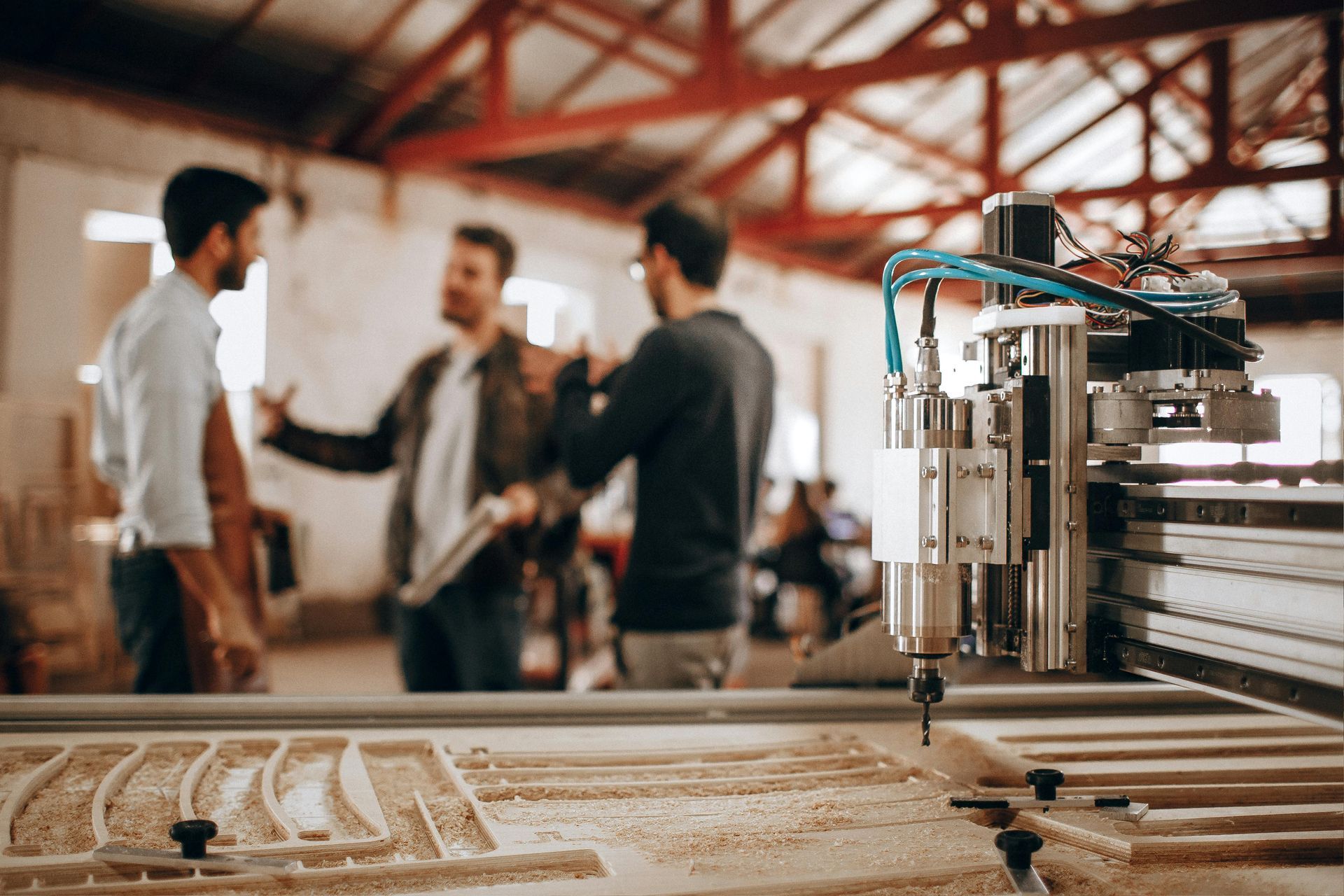
In the world of asset management and equipment valuation, knowing the age of a piece of machinery is essential—but not all age metrics are created equal. While chronological age gives you the exact number of years since an asset was manufactured, effective age provides insight into its actual working condition. Understanding these two age metrics can help businesses make smarter decisions about asset investments, maintenance, and replacements. This article explores the difference between effective and chronological age, why each matters, and how these metrics impact asset management. Let’s dive in. What is Chronological Age? Chronological age refers to the number of years since an asset, like heavy machinery or industrial equipment, was first manufactured or installed. Much like a birthdate for humans, chronological age is a fixed and straightforward metric. Why It Matters Chronological age is crucial for establishing basic depreciation schedules, determining tax implications, and meeting compliance requirements. For instance, certain IRS guidelines on equipment donations and deductions, outlined in thisresource from Cornell Law , rely on an asset’s chronological age to help determine its residual value for tax deductions. Chronological age alone, however, does not tell the whole story about a piece of equipment’s operational condition. What is Effective Age? Effective age, on the other hand, represents how old an asset feels or operates based on its condition, wear, and maintenance history. In other words, it reflects the level of depreciation that has occurred beyond just the passing of years. A piece of equipment that has undergone regular maintenance and upgrades may have a much lower effective age than a similar piece of equipment that hasn’t received the same level of care. Example Consider two bulldozers manufactured in 2015. If one has been used heavily and only received occasional repairs, it may show signs of wear and tear consistent with a much older machine. The other bulldozer, meticulously maintained and operated under ideal conditions, may still function as though it’s only a few years old. The chronological age is identical for both machines, but their effective ages are dramatically different. Why Effective Age Matters in Equipment Valuation More Accurate Market Value Assessments When appraising equipment, understanding effective age allows asset appraisers to assign a more accurate value based on the machine’s actual condition. Equipment with a low effective age, regardless of its chronological age, may have a higher market value. For businesses looking to liquidate assets or procure equipment, this distinction can be vital. Better Investment Decisions Companies can make more informed buying and selling decisions by evaluating equipment based on effective age. When looking to buy used machinery, for instance, focusing on effective age rather than chronological age can reveal the true value and operational lifespan of the asset. Improved Maintenance and Lifecycle Planning Effective age can also guide maintenance decisions. Assets with higher effective ages may need more frequent maintenance, helping organizations allocate their budgets effectively and plan for replacements. To learn more about the impact of asset condition and age on decision-making, explore Wharton’s insights on algorithmicmanagement , which discusses the influence of data-driven approaches on business operations. Factors that Influence Effective Age Understanding effective age involves considering multiple factors that directly impact an asset’s performance and lifespan. Here are some of the main determinants: 1. Usage Intensity Assets that are used more frequently or in demanding conditions tend to experience faster wear and tear. A truck used daily on rough terrains will have a higher effective age compared to a similar truck used infrequently on smooth roads. 2. Maintenance and Repairs Regular maintenance can significantly extend the useful life of equipment. Scheduled upkeep, preventive maintenance, and timely repairs all contribute to lowering an asset’s effective age. An asset that is neglected or only repaired when it breaks down will likely have a higher effective age. 3. Environmental Conditions The operating environment affects how quickly equipment degrades. Machines used in harsh environments, such as high-humidity regions or locations with extreme temperatures, often exhibit signs of aging faster than those used in controlled or moderate conditions. 4. Technological Upgrades An asset’s effective age can also be impacted by technological advancements. Equipment that has been upgraded with newer components or software updates may function more efficiently, effectively resetting its effective age to a lower figure. For companies in sectors like healthcare, where equipment and systems require precise functionality, tracking effective age is crucial. Courses like the Healthcare Revenue Cycle Intensive emphasize the importance of system upgrades and maintenance in equipment lifecycle management. Effective Age vs. Chronological Age: Key Differences Metric Description Impact on Equipment Management Chronological Age Time elapsed since manufacture. Used in depreciation schedules and for compliance. Effective Age Perceived age based on condition, wear, and upgrades. Provides insight into operational lifespan and true asset value. While chronological age gives a standard depreciation timeline, effective age allows businesses to gauge the actual usable lifespan of equipment. Evaluating both metrics together offers a comprehensive view of an asset’s value and functionality.
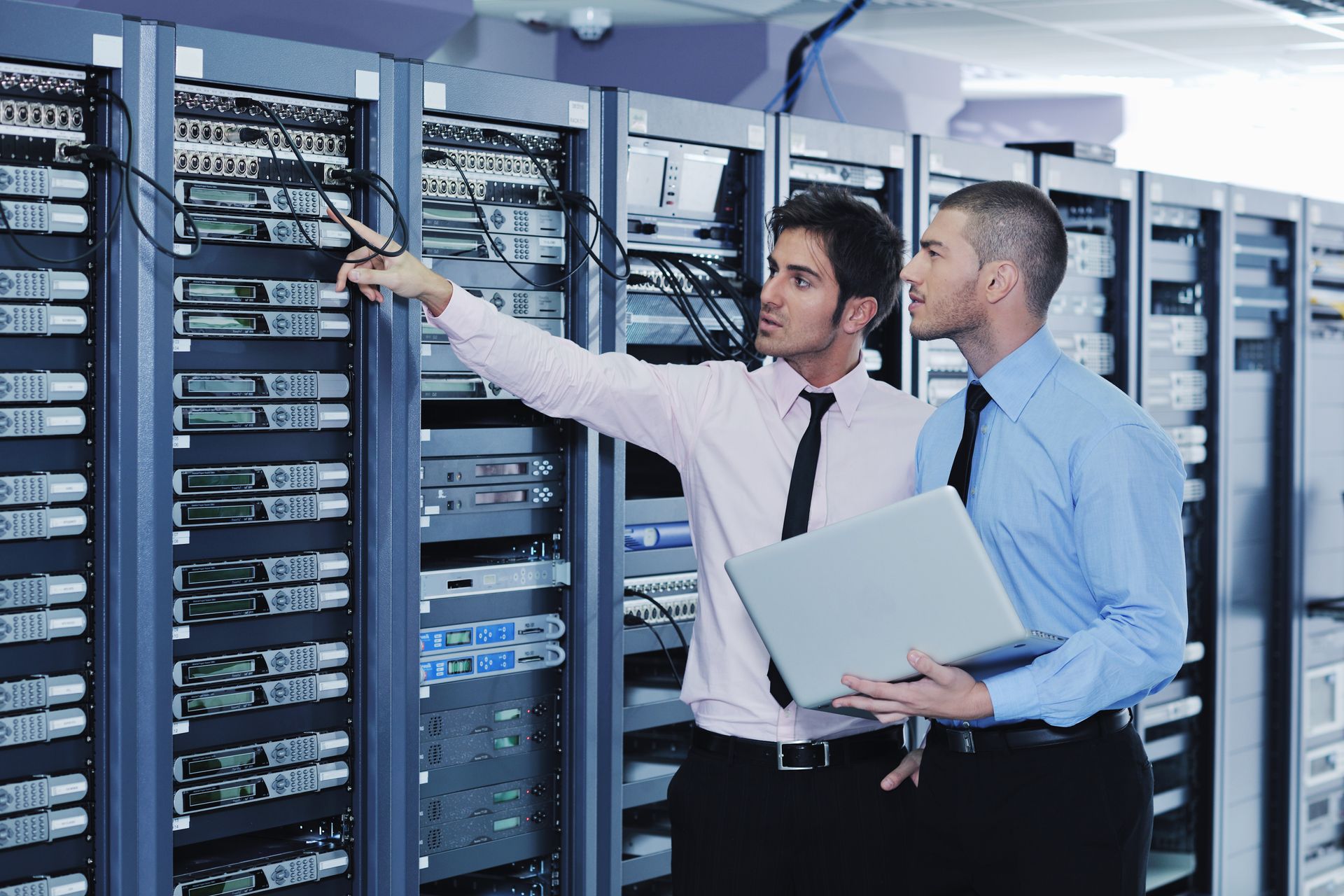
When businesses decide to donate equipment to a qualified charity, it’s not just an act of generosity — it’s also a way to receive significant tax benefits. However, to make sure that the value of the donation is accurately reflected and approved by the IRS, a credentialed appraisal is often required. This is especially true for high-value equipment donations that exceed IRS thresholds. Without a credentialed appraisal, businesses risk their tax deductions being rejected or penalized for non-compliance. At Asset Technologies Inc., we understand the vital role credentialed appraisals play in maximizing tax deductions and maintaining compliance. For businesses in Pennsylvania, New Jersey, Maryland, New York, Virginia, and beyond, a thorough, credentialed appraisal ensures that equipment donations are valued correctly, ensuring both legal and financial peace of mind.
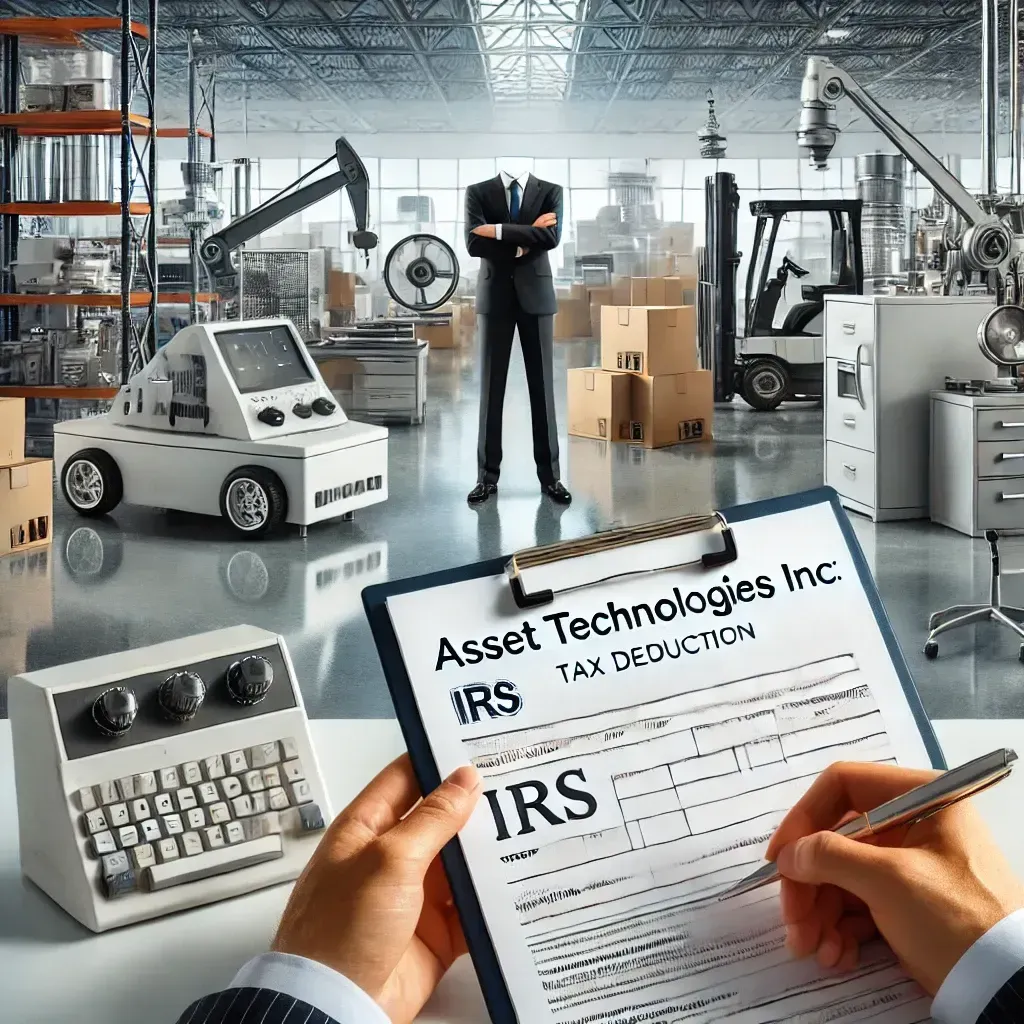
As businesses grow and adapt to new technologies, upgrading machinery and equipment becomes essential. Whether you’re replacing outdated equipment or downsizing your operations, donating unused equipment offers a compelling benefit: tax deductions. However, to maximize the potential savings and ensure compliance with IRS guidelines, it’s crucial to understand the specifics of equipment donation and the appraisal process. In this guide, we’ll walk you through the eligibility criteria for equipment donation tax deductions, discuss the types of equipment that qualify, outline donation limits, and explain the value thresholds that require an official appraisal. If you’re a business in Pennsylvania, New Jersey, Maryland, New York, or Virginia looking to donate equipment and claim a tax deduction, this guide will help you navigate the process effectively.
